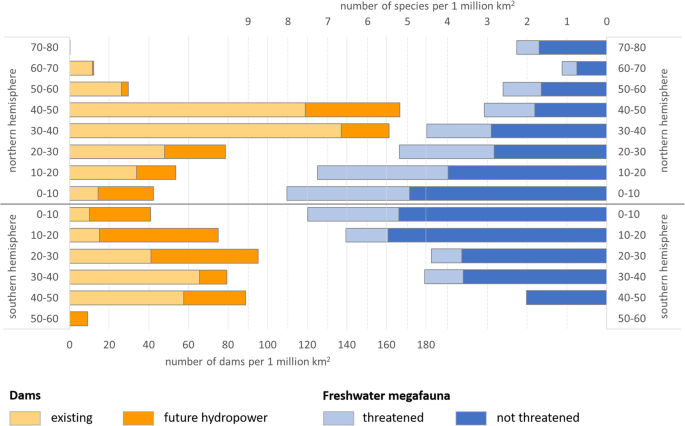
- Select a language for the TTS:
- UK English Female
- UK English Male
- US English Female
- US English Male
- Australian Female
- Australian Male
- Language selected: (auto detect) - EN
Play all audios:
Most narratives of World War I locate its outbreak in diplomatic fault lines on the eve of war. Erik Grimmer-Solem’s new book _Learning Empire: Globalisation and the German Quest for World
Status, 1875-1919 _puts the spotlight on a deeper fissure that had opened up decades earlier. Elite thought before World War I was in thrall to the historical school of economics, which was
exported around the world from German universities. On this reading, in 1914, things went badly wrong because governments had too much faith in economists getting things right. Germany’s
universities before World War I were pre-eminent though sheer scale alone. Universities in German and Austrian lands not only outnumbered all the universities in the rest of Europe combined,
they also led in many fields, including economics. At a time when American universities did not yet teach economics at graduate level, German universities were breaking new ground by
marrying statistics and history. They educated students from the US, who returned home to found the departments of Political Science at the University of Chicago and of Sociology at Yale.
German economics reached peak prestige in the US in 1906 when Columbia University appointed Hermann Schumacher (1868-1952) as the first Kaiser Wilhelm Professor. Schumacher belonged to a
generation of German scholars that scaled up their subject area to map interrelationships across the world as a whole. One such was Ferdinand von Richthofen (1833-1905), a geographer of
China who coined the term “Silk Road” for the overland avenue that connected Asia and Europe through trade. Among economists, Gustav Schmoller (1838-1917) was the leading proponent of what
became known as historical economics. Schmoller in his early career was a scholar of medieval and mercantile economies, a field peripheral to topical issues. He became a thought leader
beyond the groves of academia through editing scholarly journals that disseminated his approach to a wider readership. Historical economics originated the concept of Weltwirtschaft, the
economy of the world as a coherent whole. This was a fateful step. From there it was but a short step to consider the economy of the world enveloped by a corresponding political frame:
Weltwirtschaft was yoked with Weltpolitik. Historical economists handed Germany’s political elite a seductive mantra. The German economy had been doing quite well, in fact had been catching
up with her neighbours, but German policymakers eyed other countries that had expanded their colonial reach and worried that Germany would by stymied in the long run for lack of colonies. It
became difficult to maintain that a truly successful economy could be maintained in the long run in a country without a matching global standing in the political arena. Weltwirtschaft was
not to be had without Weltpolitik, and the inference was that Germany’s colonies-to-be would need a fleet to protect them. Academic authority was co-opted to make the case for a naval arms
race. Schmoller became known as a Flottenprofessor. The commingling of history with economics and wargaming was not unique to Germany. Alliances and animosities were fluid. In 1902, a
Venezuelan default prompted German and British navies to team up and dispatch a flotilla to Venezuelan waters. The US protested against Anglo-German gunboat diplomacy that intruded into its
sphere of influence. That economic and political spheres overlapped had by then become orthodox opinion. This was a far cry from the thinking of an earlier generation of economists: Richard
Cobden had argued the United States was destined to prosper and overtake the British Empire precisely because American business did not have to fund a navy. In the US, the UK and Germany,
the liberal axiom linking commerce and pacifism had by the 1900s given way to a policy mix of protectionism and increased military spending. In Washington, William McKinley hiked tariffs to
nearly 50 per cent; in London, Joseph Chamberlain advocated a customs union for the British Empire; in Berlin, Bernhard von Bülow pushed through retaliatory import duties. Meanwhile, in
Germany, scholars whose renown rested on the economies of medieval Strasbourg or of Prussian mercantilism came to endorse policies that ranged from building battleships to railways from
Berlin to Baghdad. Historical economists in Britain likewise endorsed government policy of the day. William Ashley (1860-1927), a student of Schmoller, in 1903 published _The Tariff Problem_
which recommended preferential tariffs to protect the British Empire. In truth the policies advocated by German economists were notable mainly as case studies of unintended consequences:
Germany’s battleships were sidelined during the Great War and the Berlin-Baghdad railway was never completed. It is a moot point whether German economists might by adopting different
political positions have helped avert the war. But _Learning Empire_ enlarges the view of what made World War I possible. Moreover, Grimmer-Solem’s book speaks also to a wider readership
with an interest in relations between politics and academia. Long before World War I was over, Columbia University terminated the Kaiser Wilhelm Professorship, and Germany never regained its
position as thought leader in economics. But the historical school of economics spawned fruitful offshoots in other countries and in neighbouring disciplines. Schmoller’s American students
included Emily Greene Balch, a Nobel Peace Prize laureate for her work promoting pacifism and feminism, and W.E.B. Du Bois, a pioneer of the sociology of African-Americans. Hermann
Schumacher’s son Ernst, better known as E.F. Schumacher, wrote _Small Is Beautiful: A Study of Economics As If People Mattered, _which has been hugely influential since its publication in
1973. As Thomas Macaulay observed, historical calamities often were preceded by “noiseless revolutions” that had taken shape long before. Grimmer-Solem’s history of one such noiseless
revolution — the academic and political debate about free trade, protectionism and militarism — lends this book an eerily contemporary resonance. _LEARNING EMPIRE: GLOBALISATION AND THE
GERMAN QUEST FOR WORLD STATUS, 1875-1919 _ (CAMBRIDGE UNIVERSITY PRESS) BY ERIK GRIMMER-SOLEM IS AVAILABLE FROM AMAZON.









